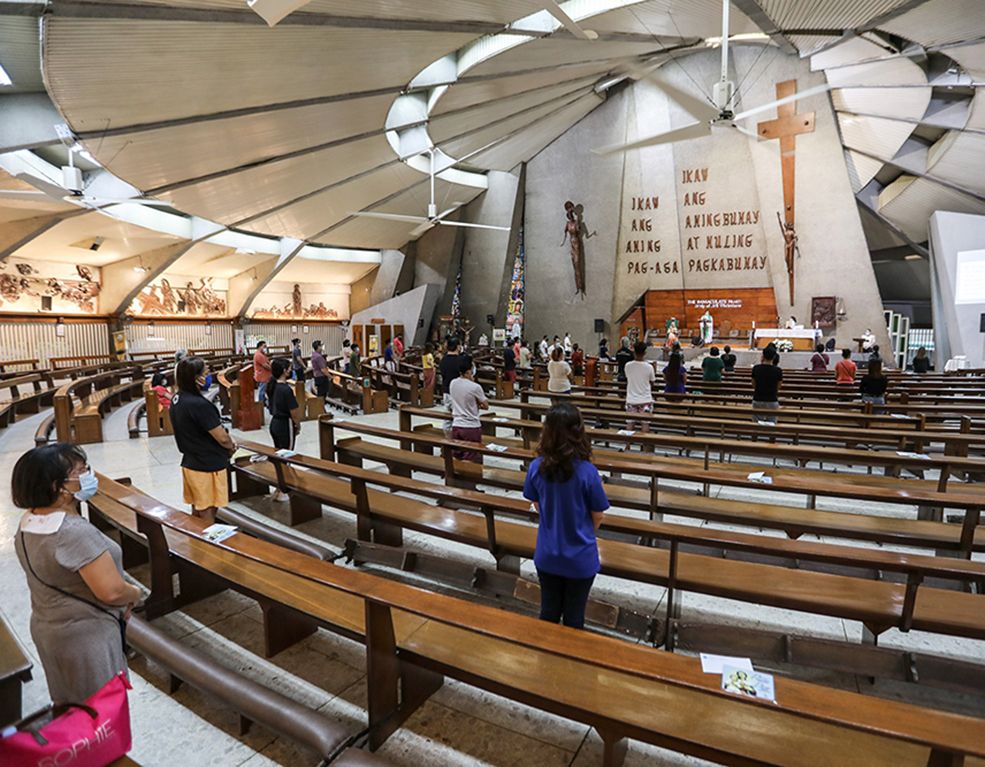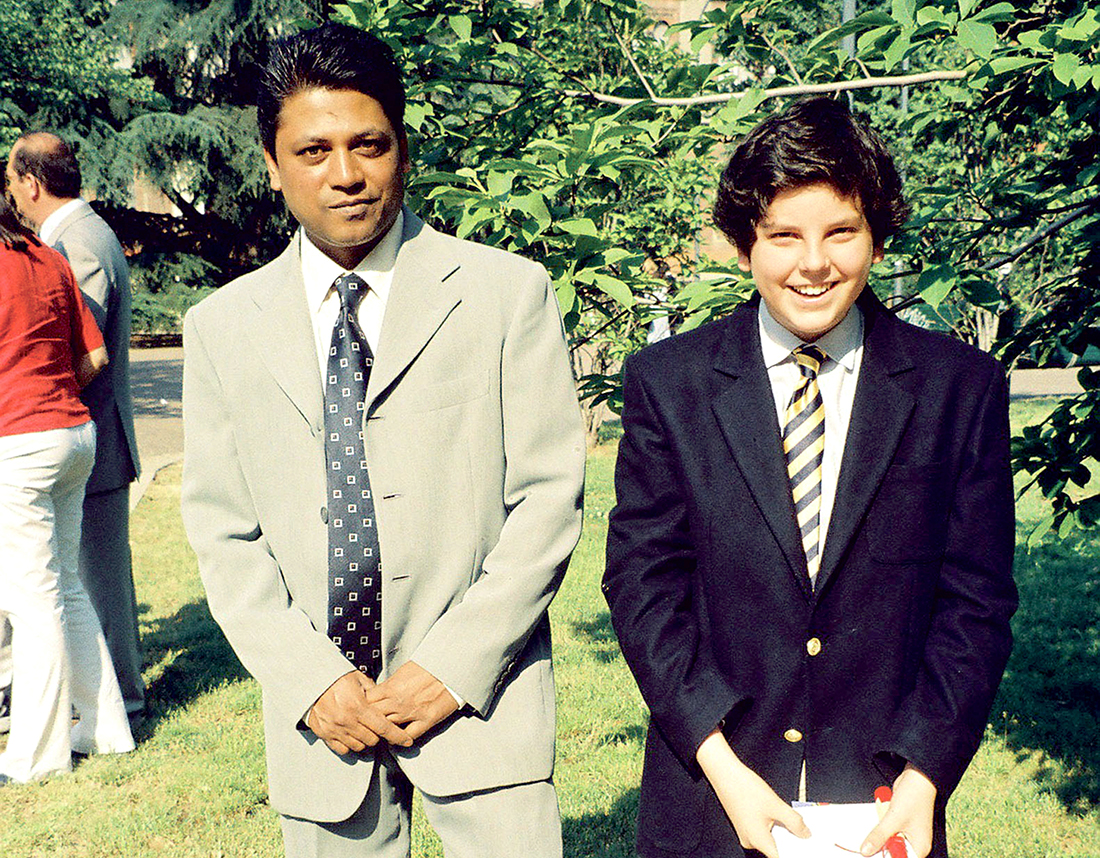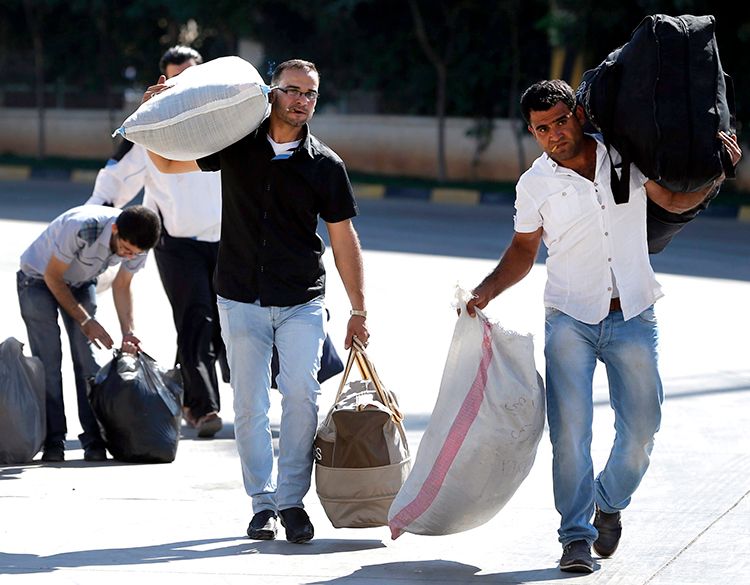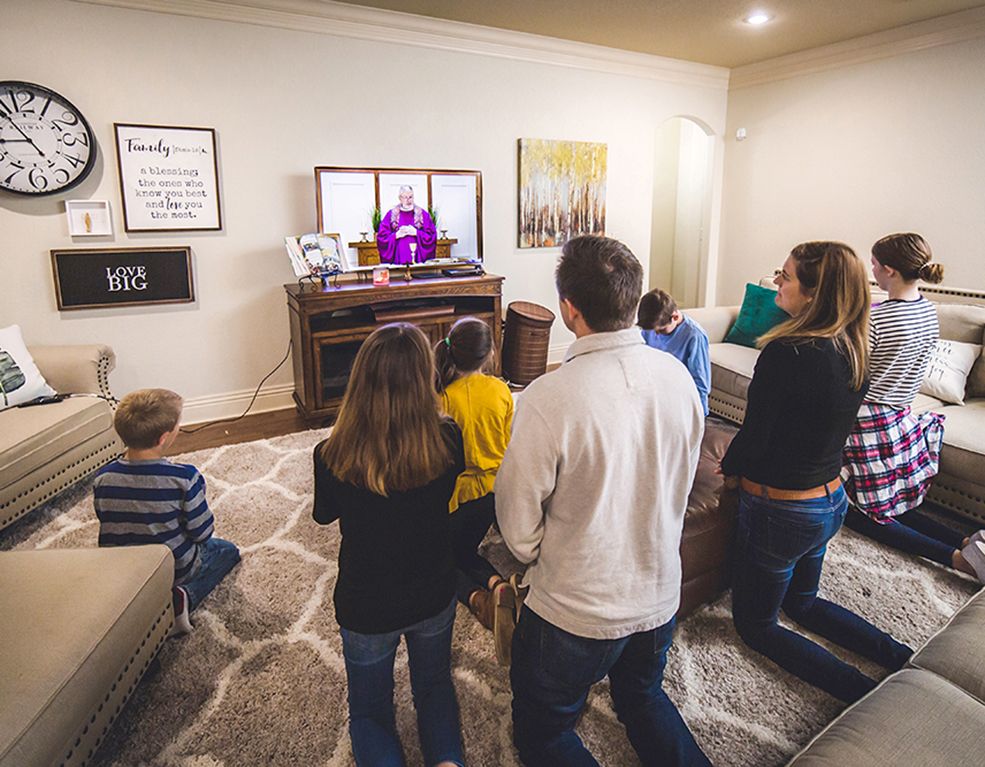There’s nothing more depressing for a missionary who lives and works at the extreme periphery of the Church than reading articles and books on the Church’s mission. Experts and theologians tell us how we should be, and what actions we should take to address the new and major challenges of missionary life. Then, in fact, missionaries remain basically isolated.
Over time, every missionary learns to discern the things he can do, those in which he has some talent, and then, with God’s help, he tries to do something at the service of the Gospel. The failures are inevitably more numerous than the successes. Then, of course, you are told you have acted in isolation. You start doubting whether you have done everything wrong, or whether you have betrayed your vocation and the charism of your institution. Or whether you are only a missionary because of the label that has been sewn onto you.
Some years ago, I enrolled to attend a spiritual retreat led by a great theologian and writer on missionary themes. I had read his texts and found them inspiring. The topic under discussion, “Challenges for the Mission Today,” was of great interest to me. The course was to be held in Malawi, an African country normally considered a tourist paradise. But it was not held because the famous theologian cancelled it at the last minute, apparently because he was told that, in Malawi, he would be at risk of contracting malaria.
I decided to use that week to make another trip to the Nuba Mountains, region of Sudan, where there were Christians for whom it was a luxury to celebrate the Eucharist and the Sacrament of Reconciliation. It was something they could only afford to celebrate once every two or three years. The experience immuned me to fine words, spoken or written. I learned to believe more in the wisdom of simple people – and to the stimuli and calls we receive from them – rather than in the wisdom of the learned intellectuals.
The future is passing by
Of course, I did not stop thinking about what I did and still do. I continued reading all the materials that are written on the topic of mission life, at least in the texts that I can find. The duty to keep alive, alert and vigilant, as Jesus tells us in the Gospel, is valid not just for the sake of waiting the return of the Lord, but also because it is an integral part of the life of the missionaries – in order to deepen their knowledge of the society and culture of the people among whom they live.
After this long introduction, one written by a missionary of the streets – or as they say in Nairobi, a “jua kali” missionary (Swahili for “one who operates under the hot sun”) – it is clear that the following list is the result of a highly personal vision. I do not want to use words like “pneumatology,” “models of church” and “missionary paradigms.” In fact, I would not be able to use such big words correctly. I speak of the challenges in my life as a missionary only thinking of the people I have met in recent times, of the questioning eyes that have searched my eyes, and of the questions they have sometimes asked without even opening their mouth.
Jeannine was born in Rwanda. She fled the country in the months immediately following the infamous 1994 genocide. At the age of 19, she arrived in Nairobi with her mother after two years of wandering between Burundi and Tanzania and Uganda. Now she is married to a fellow Rwandan refugee and they have three children. Her husband is a wood carver operating from Kivuli, the center for former street children where I live in Nairobi, while she does the housework. In the past few months since Rwandan refugees were allowed the right to reside legally in Kenya, and thus no longer have to hide every time a policeman passes, she spends her free time outside the door of the cabin that they rent in the Kawangware slum, roasting and selling corn cobs to passers-by. But this is not her home and her culture. She would like to go back to Kigali but does not feel safe. The same case applies to many Sudanese nationals who came to Nairobi over the many years of civil war in their country, and do not want to return because they fear that the fragile peace will not last. There are, at least, one in five refugees from the Sudan war in my neighborhood.
On the other hand, Denis is a Kenyan boy of 16. His mother is a single, economically-independent lady from that generation of emancipated women who chose to have a child without wanting a husband. Denis attends a highly reputed private school where his tuition alone amounts to the average monthly salary of nearly half of the working population in Nairobi.
Needless to say, Denis is a privileged boy. Yet, last Sunday, he approached me outside the church and said he wanted to confess, although he is not a Catholic. Actually, he wanted to have some time to talk randomly about his fears and dreams concerning his future, his confused desire to deepen his relationship with Jesus and join the Catholic Church, his uncertain sexual identity, and his desperate need to find someone who will give him advice and help him navigate the forest of life. He uttered a revealing phrase: “Our elders in the village became adults through initiation. I have grown up watching television. I cannot deny that I like it, makes me feel I am in touch with the world. But I do not find answers to my questions. My mom? She is a stranger, although I love her because she gives me everything I need.”
Young people across Africa no longer have any kind of guidance. The statistics tells us that, in Africa, 50% of the population is under 18 years old. Although many of them have a strong demand for spirituality, the Church cannot reach but a few of them, and often quite superficially, for lack of apostolic committed personnel. The future is passing by; we just watch it go.
Urban dreams
Kivuli is a meeting point for a group of young Luhya, numerically the second Kenyan ethnic group, all of them teenagers or so, all recent arrivals from the same part of the country, all looking for a scholarship and a job, all wanting to work during the day and to study in the evening. Even them, like the privileged Denis, are searching for a meaning in their lives. They meet frequently, exchanging stories of frustrating days on the pavements of Nairobi and having fun doing a little bit of ethnic dances and theatre. Still, all of them have high hopes and a great sense of humor about their situation.
Yesterday, Kasuko, a beautiful girl, was imitating the lascivious approach tried on her by a potential employer, while Kevin told how he risked being lynched for having inadvertently hit an elderly passer-by who started yelling “Stop the thief!”, fearing that Kevin was a pickpocket. Charles got too tired of going in search of a decently-paying job. He is not even asking for much – he would be happy with a salary of $100 per month. Instead, he has decided to help an aunt, taking turns to sell fruit at a stall along the main road in Kawangware. His father, one of the many losers in this urbanization game, is permanently drunk on cheap and dangerous alcohol. Yet, these young people, despite the negative experiences they face, have not given up the search for El Dorado because, in the countryside where, in theory, they could have a more dignified life, the government does not provide essential services.
Mameo is a brave Samburu warrior. Or rather, he was. Now, he has come to Nairobi to earn some money before getting married. He is a security guard in Kibera, the largest and poorest slum in Nairobi. The first job he got, which he is still doing, is to guard residents of a group of huts who are so poor that one couldn’t understand what a thief would still want to have from them. They hired him to keep watch during the day, when all of them are either out at work or looking for work. Left alone is a seriously ill 4-year-old child whose mother has to go out also for the same purpose.
These poor residents pay Mameo $0.40 a day. At night, he works as a watchman for a middle-class family in a richer residential neighborhood nearby. When does he sleep? He answers this question very seriously: “There is no time to sleep. Now, I need money to organize for a marriage with a good girl.” Suspended between nomadic and urban life, Mameo is also a religious nomad. Every Sunday, he goes to a different church, wherever he happens to pass by. He thinks the church is not important, the important thing is to pray to the Creator.
Working together
On Saturdays, a group of women volunteers go to visit and encourage people suffering from AIDS or are otherwise gravely ill. They have only sad stories to share. Two of their patients, out of a total of about 120, had died the previous week. Others are left to die, having lost hope of gaining access to anti-retroviral drugs. One child died of malaria. Tuberculosis continues to ruin lives. Diseases that are easily cured in the neighboring rich suburbs of Nairobi by swallowing a few pills, are a death sentence here among the poor. Agnes shook her head sadly, “The best thing we can do is help patients die peacefully, trusting in God.”
In Kibera, near the house that hosts our emergency shelter for street children, lives Amani, about 40, a Muslim. He is not a religious fanatic, but is a man of granitic faith. Amani trades in secondhand clothes and, during his leisure time, he coaches a group of young people engaged in traditional wrestling. A couple of months ago, he determinedly approached me for the first time, with a concise speech obviously prepared with great care.
“Mr. Kizito” – that is what he called me – “for the past two years, I have watched what you and your Koinonia members are doing to help our children and to assist with the education of our young people. Why don’t we do the work together?”
And, out of this conversation, an initiative was born, in the form of a competition of African traditional wrestling. It is easy to work with Amani because he is a just man without deceit. I hope that, together, we can make things even more challenging in terms of human formation.
All these are faces that come to my mind when I think of mission. With them, I am part of a river of life that carries me and makes me feel immersed in the inexhaustible and ever-shifting complexities of the human condition. The majority of them are poor, humble people struggling to support themselves and their families, engrossed in putting together something to eat everyday, and being able to pay their rent at the end of the month. They are people who are, in many ways, in transition between tradition and modernity – at the mercy of social, economic and cultural forces that are immensely stronger than them. When you talk to them about God they manifest a genuine faith. They are open to the Gospel, even if they come from different religious traditions. They are full of hope and positivity that helps them to overcome unimaginable difficulties.
I, from a world permeated by a strong sense of cultural superiority, reinforced by technological supremacy, want to share the Gospel of Jesus of Nazareth with them. Jesus was a poor, simple and a good Man who was able to get close to all with understanding and affection, renewing their faith and bringing them closer to God the Father. Jesus loves the people, accepts all and forgives all our sins. He extended a hand to everyone, inviting them to grow in humanity by accepting the Father’s love and, at a sociological and cultural level, He was part of their culture and their dreams.
The true health of the Church
How can I be a missionary for all these people whom I meet? What challenges do I face? I could make a long list: problems of justice and peace related to poverty and lack of development; urbanization; the attraction of a modern culture that is imbued with materialism; dialogue with other faiths, especially Islam. These seem to be, at least for me in Africa, the greatest challenges out there.
There are a number of other challenges that arise from deficiencies in our Church and missionary training, and that may be listed as follows: a tendency to present the faith as if it were a series of precepts rather than a personal relationship with the Risen Jesus; resistance to change and, therefore, inability to promote a deep inculturation, not only on external rites such as musical instruments or gestures during celebrations, but the community relations and the Christian formation of the young people; a presentation of human sexuality that still goes back, at best, to the middle of the last century in Europe, focused on what you cannot do rather than on how you should be.
But the real challenge is in the people: their need for meaning and relationships; their need for God. People are not a problem but an asset, the only true wealth of the Church. The missionary methodology is the methodology of Jesus: go straight to the hearts of the people and build relationships and communities. If I am a Christian, I can only look at others as brothers and sisters who need love and understanding.
Dietrich Bonhoeffer, the great Protestant theologian who was so close to his flock that he died in a Nazi concentration camp, summed up the attitude in which we must put ourselves in front of others: “The first service that one owes his neighbor is to listen to him. He who does not listen to his brother will soon not know how to listen to God anymore.”
Probably, then, the most pressing mission challenge to me is my conversion.













